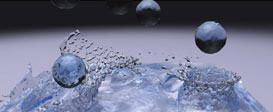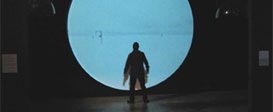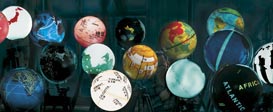Multiperspective Modeling, Rendering, and Imaging
![]() Full Conference
Full Conference ![]() One-Day Full Conference
One-Day Full Conference
Thursday, 11 December, 15:45 - 17:30
Room 312
Level: Intermediate
A perspective image represents the spatial relationships of objects in a scene as they would appear from a single viewpoint. In contrast, a multiperspective image combines what is seen from several viewpoints into a single image. Despite their incongruity of view, effective multiperspective images can preserve spatial coherence and can depict, within a single context, details of a scene that are simultaneously inaccessible from a single view, yet easily interpretable by a viewer. In computer vision, multiperspective images have been used to analyse structure revealed via motion and generate panoramic images with a wide field of view using mirrors.
This tutorial provides a practical guide on topics in multiperspective modeling and rendering methods, and multiperspective imaging systems. It begins with a brief review of multiperspective image techniques frequently employed by artists. Illustrations include the visual paradoxes of Escher, the Cubism of Picasso and Braque, and multiperspective panoramas in cel-animations. The course characterises existing multiperspective camera models, with an emphasis on their underlying geometry and image properties, then demonstrates how to use these camera models for creating specific multiperspective rendering effects. The course includes demonstrations of several multiperspective imaging systems for extracting 3D geometry for computer vision.
Prerequisites
Basic understanding of camera operation, image processing, and machine vision.
Intended Audience
Digital artists, photographers, and computer graphics and computer vision researchers who use or build multiperspective cameras.
Instructor
Jingyi Yu
University of Delaware
Instructor Bio
Jingyi Yu is an assistant professor in the Computer and Information Science Department at the University of Delaware. He received his BS from the California Institute of Technology in 2000 and MS and PhD degrees in electrical engineering and computer science from the Massachusetts Institute of Technology in 2005. His research interests span a range of topics in computer graphics, computer vision, and image processing, including computational photography, non-conventional optics and camera design, tracking and surveillance, and graphics hardware.









